ADHD

The Great Misdiagnosis
ADHD

The Great Misdiagnosis
Revised Edition
JULIAN STUART HABER, M.D., FAAP
Taylor Trade Publishing
LanhamNew York Oxford
Copyright 2003 by Julian Stuart Haber
First Taylor Trade Publishing edition 2003
This Taylor Trade Publishing paperback edition of ADHD: The Great Misdiagnosis is a revised edition. It is published by arrangement with the author.
All rights reserved.
No part of this book may be reproduced in any form or by any electronic or mechanical means, including information storage and retrieval systems, without written permission from the publisher, except by a reviewer who may quote passages in a review.
Published by Taylor Trade Publishing
A Member of the Rowman and Littlefield Publishing Group
4501 Forbes Boulevard, Suite 200
Lanham, Maryland 20706
Distributed by National Book Network
Library of Congress Cataloging-in-Publication Data
Haber, Julian Stuart.
ADHD : the great misdiagnosis / Julian Stuart Haber. Rev. ed.
p. cm.
Includes bibliographical references and index.
ISBN 978-1-58979-047-6
1. Attention-deficit hyperactivity disorderDiagnosis. 2. Attention-deficit hyperactivity disorderTreatment. 3. Attention-deficit-disordered children. 4. Diagnostic errors. I. Title.
RJ506 .H9H334 2003
618 .928589dc21
2003007849
 The paper used in this publication meets the minimum requirements of American National Standard for Information ServicesPermanence of Paper for Printed Library Materials, ANSI/NISO Z39, 481992.
The paper used in this publication meets the minimum requirements of American National Standard for Information ServicesPermanence of Paper for Printed Library Materials, ANSI/NISO Z39, 481992.
Manufactured in the United States of America.
To my wife, Marian, for her persistence, love,
and encouragement, and in the memory of
Warren Weinberg, M.D., professor of pediatrics and
neurology and director of the Pediatric Behavioral
Neurology Program, University of Texas
Southwestern Medical Center at Dallas.

Contents
by Margaret Carr
Appendix 1: Diagnostic and Statistical Manual, Fourth
Edition, Diagnostic Criteria For Attention Deficit
Hyperactivity Disorder
Appendix 2: The American Academy of
Pediatrics Definition of ADHD
Appendix 3: Colleges and Universities That
Offer Programs for Young Adults with
Learning Disabilities and ADHD
Appendix 5: Sample Letter Requesting
Special Education Services

Foreword
I remember the first time I met Julian Haber. It was thirty-one years ago! I had just earned my teaching degree and started teaching first grade at a private, college-preparatory school. Thats when Dr. Haber, the pediatrician of one of my students, proceeded to tell me how I should teach the child in school. Because I clearly knew everything there was to know about instruction, I reacted by telling him something like, I wont tell you how to practice medicine if you dont tell me how to teach.
I have since learned better. In the years since our first encounter, both of us have improved our learning. Julian has kept up with the latest research, particularly regarding students with learning difficulties. He has conducted scholarly research of his own. Besides maintaining his thriving pediatric practice, Julian has taught speech-language pathology students at Texas Christian University. My own realization of inadequacy, after a few years in the classroom, led me to earn a masters degree in special education with training as an educational diagnostician, special education teacher, and supervisor.
Julian and I have crossed paths often over the years. We both have become advocates for children, particularly children with learning disabilities. Julian and I both served on the local council of the Learning Disabilities Association of America (which was called the Association for Children and Adults with Learning Disabilities). We were both charter members of the Special Education Advisory Committee for our school district. We have exchanged information with each other over the years as our interest and knowledge expanded.
Several years ago I asked Dr. Haber to speak to the faculty at an elementary school where I was the principal. Several teachers there fancied themselves as having medical knowledge. You know some of those teachers. They are the ones who tell parents, Your child has attention deficit disorder. You need to take him to the doctor and get him some medicine. Julian, a developmental pediatrician, impressed the faculty with his knowledge and skills, but he impressed them even more because they understood what he was saying. He gave them information with a liberal dose of humorinformation they could take into the classroom the very next day and use to improve the learning of their students.
Julian has written a book that I believe will be extremely helpful to parents and teachers. It is written to inform, but it is written in a way that is humorous and easy to read. I began reading the manuscript in a neurologists waiting room. I became so absorbed in the text that I just sat there, laughing out loud occasionally, and forgot to worry about why I was there. Now thats engrossing!
Julian shares his expertise and experience in the book. He reports that, day after day, worried parents bring their children into doctors offices because other adults have suggested that their children may have ADHD, or Attention Deficit Hyperactivity Disorder. All too frequently doctors do a cursory examination and prescribe medicine to control ADHD. In the United States, so many children have been labeled with ADHD and medicated that methylphenidate (Ritalin) has experienced a sixfold increase in manufacture since 1990 (more than 90 percent of methylphenidate manufactured is administered to children). Such figures, Dr. Haber writes, imply that America has an epidemic rivaling any that has besieged our population in the past century.
Of course, as Dr. Haber notes, some children do have disorders of inattention, increased activity, and impulsivity. A good clinician looks at these disorders, however, as symptoms of a problem that may be present in any number of neurobehavioral disorders. Dr. Haber points out that it is the differential diagnosis of these disorders that results in correct treatment and educational practices.
Dr. Haber describes many of the disorders that present some of the same symptoms as ADHD in terms that are meaningful to parents, teachers, and medical parishioners. He addresses not only the diagnosis, but also the treatments, medical and otherwise. Parents whose children are correctly prescribed medication can learn what to expect and when. Teachers who work with children in the classroom or on a daily basis can learn ways to maximize their instruction for children with learning problems. More importantly, however, Dr. Haber offers parents hope for the future. His closing statements reflect his compassion for all children with learning problems. He writes, Trying harder, getting help early, family support, self-esteem, and acquiring alternative skills can help most children with differences to succeed. I cannot recommend Dr. Habers commonsense approach too much. He provides a wealth of information and holds no cows sacred!


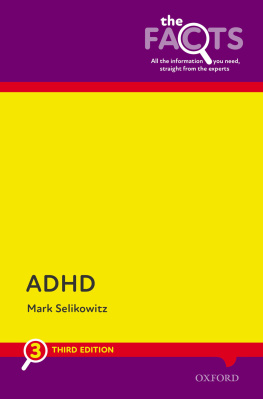
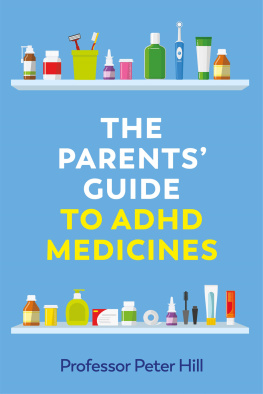
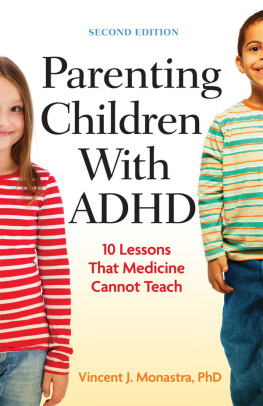
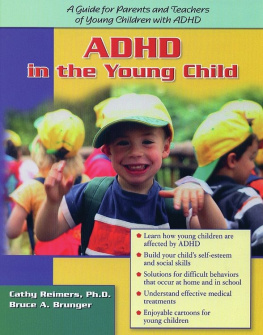

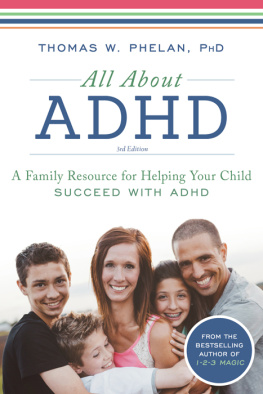
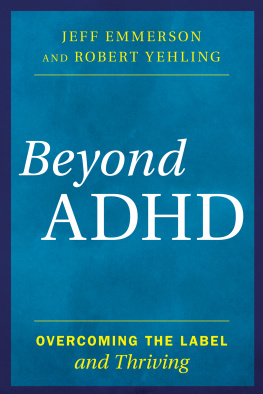
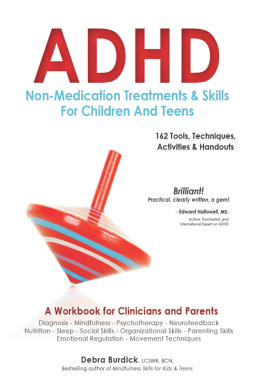
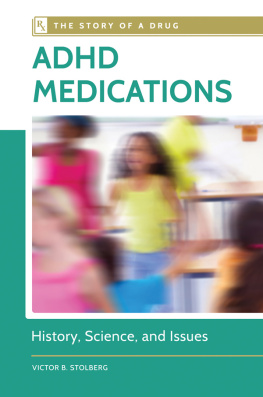

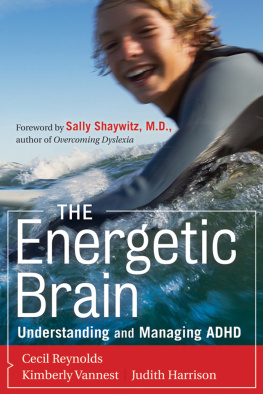


 The paper used in this publication meets the minimum requirements of American National Standard for Information ServicesPermanence of Paper for Printed Library Materials, ANSI/NISO Z39, 481992.
The paper used in this publication meets the minimum requirements of American National Standard for Information ServicesPermanence of Paper for Printed Library Materials, ANSI/NISO Z39, 481992.